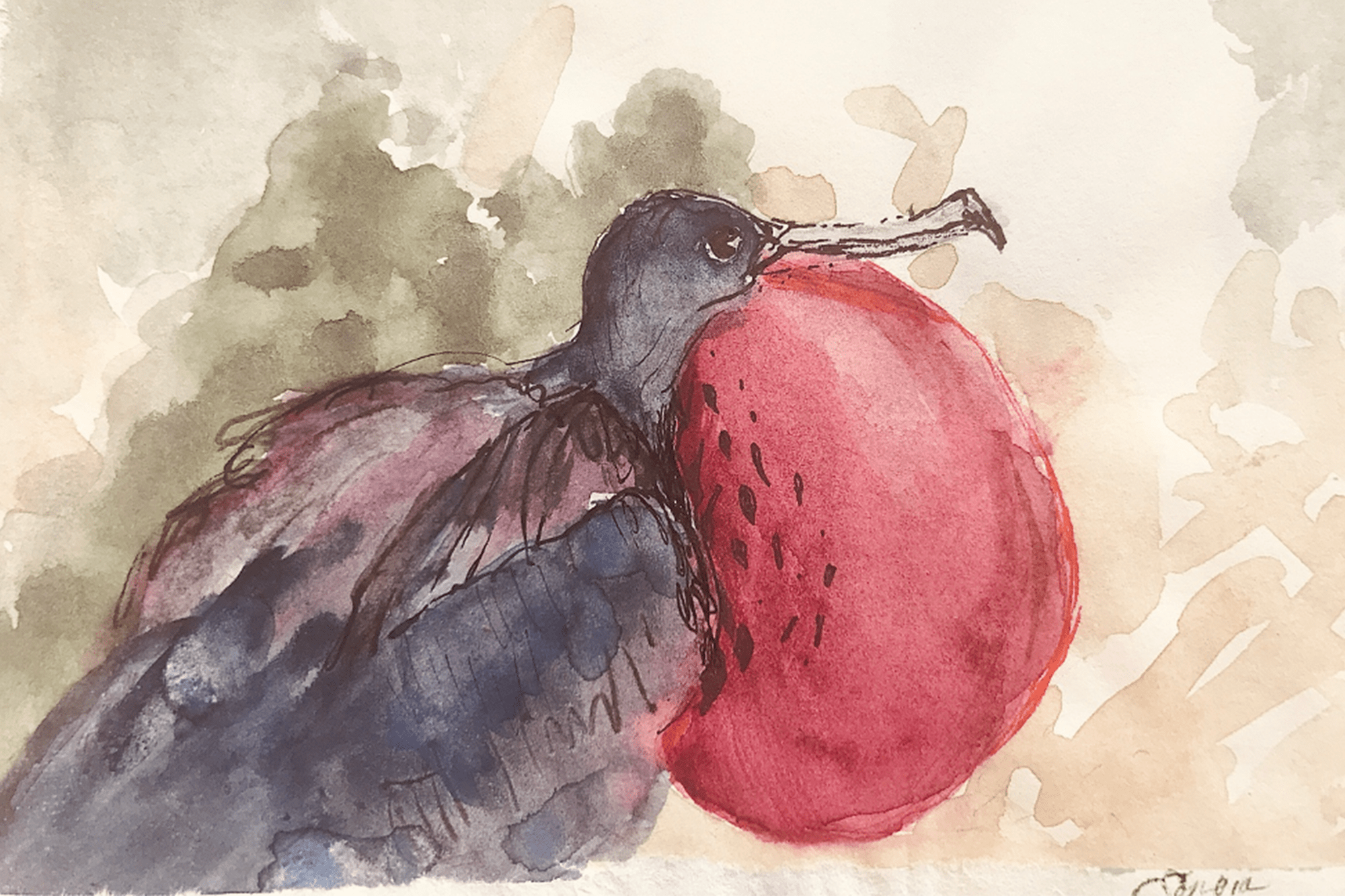
To whom It may concern,
It’s becoming evident to me that despite the length of days near the equator, time in the tropics seems to pass very quickly.
March 14, 2022, Week 09 – Isla De Santa Cruz, Ecuador
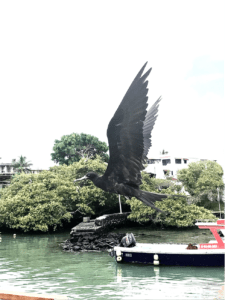 As the end of our expedition gets closer and closer, we’re doing more homework every day to finish the term before we leave, and the crew spends time in the field searching and scoping more nests to add to our map. We spent our day off on a day trip to another island called Bartolome hoping to see other types of wildlife before we make our departure from the island. Specifically, Galápagos Penguins.
As the end of our expedition gets closer and closer, we’re doing more homework every day to finish the term before we leave, and the crew spends time in the field searching and scoping more nests to add to our map. We spent our day off on a day trip to another island called Bartolome hoping to see other types of wildlife before we make our departure from the island. Specifically, Galápagos Penguins.
We woke up early to get ready, and catch a bus to the dock on the other side of the island. The drive from our house was about 40 minutes long, and it went through the highlands, where it was beginning to rain. When we got to the dock, we were given life jackets and got on a little dingy which took us to a bigger sail boat. There were 14 people on the boat including our group of seven. (Mom, Dad, Austin, Matthew, Aoife, Scott Barton who joined us earlier this week, and me).
We ate breakfast on the boat, and watched various birds and marine life in the water. On occasion, a Magnificent Frigate bird would perch on the tall masts, and take a break from flying, sometimes fighting others for fish nearby or their turn on the mast. After a long ride past Daphne Major, and Daphne Minor, we made our first stop on Bartolome, where we took a short hike. We grabbed our water bottles, and cameras, the 14 of us filled all the seats on the dingy, and we rode to a little stone staircase. We walked on a wooden boardwalk to the top of the little island. This tiny piece of Bartolome was covered in grey-brown sand, and lava rock. There were no green plants, or very many plants at all for that matter, and only a couple little lava lizards. This is because it’s a relatively new island, and the rain in blocked by Santa Cruz. The view from the top of the hill was beautiful, and we could see miles and miles of ocean spread out. The guide pointed out a little white beach on another part of the island, where we would stop next. We took lots of pictures from the top, and then walked back down the hill. Riding back to the boat on the little dingy, the guide told us about the island, and the wildlife we might see soon.
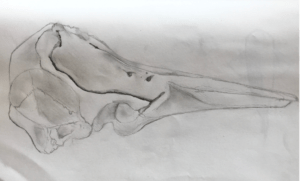
On the boat, we had a snack: blackberry juice, and banana bread. Then, we put on our swim suits and grabbed our snorkeling gear. Once again, 14 people piled into the dingy, all holding snorkels, and masks, excited to swim. Looking around at the water, in anticipation of penguins, we saw a little black and white bird shooting through the water. “Penguin!” we all pointed toward it and yelled. We hopped out of the boat, onto the beach and put on our gear. Running as fast as one can in fins, toward the ocean. The water was so clear! We saw lots of huge schools of little fish, and swam with big blue surgeon fish. I saw the silhouette of a nurse shark, and a penguin swam under me as we wandered around in the water. Three different types of bright star fish were obvious on the grey rocks. We dived under the water to look at so many shells, and organisms. After an hour of swimming, the guide called us back to the beach where we boarded our trusty dingy, and sailed back to the main boat.
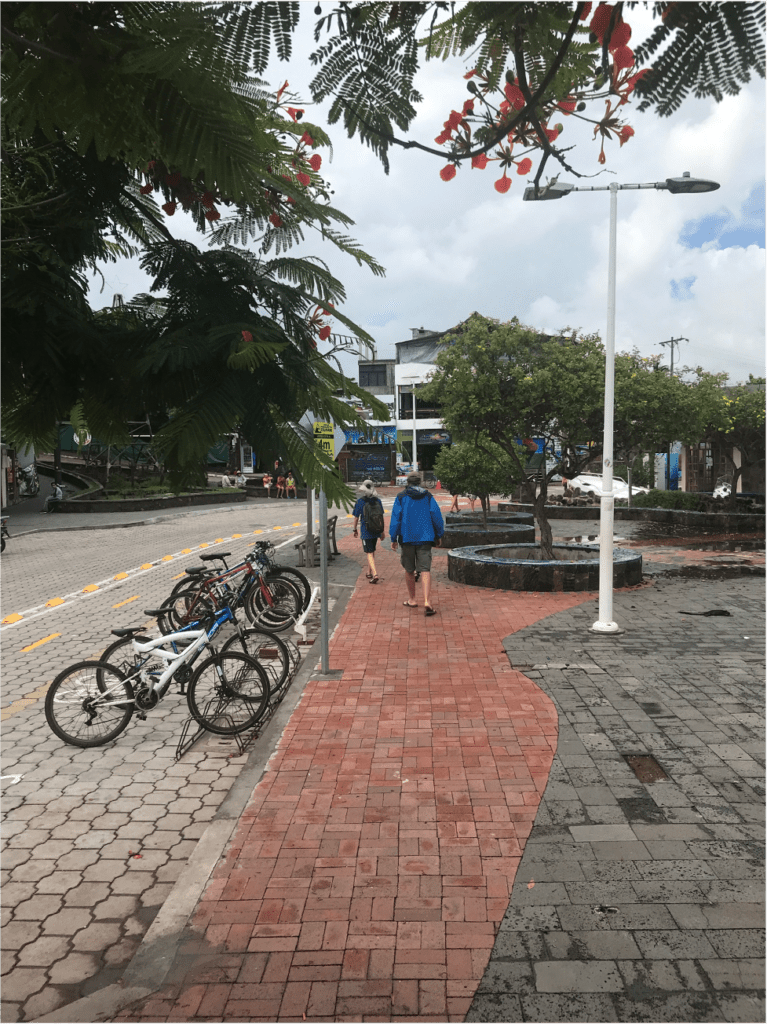 We changed into dry clothes, ate lunch, and took a nap. We watched the clouds become nearer as we got closer to Santa Cruz. Eventually, the rain started. Everyone, except our group of course, because we’re biologists, clearly the most sensible people in the world, quickly grabbed their bags and left the deck to stay dry inside the boat. We, got very, very wet. But the rain felt nice, and we didn’t mind getting wet. Not long after, we got back to the dock on Santa Cruz, and got off the boat. We took the bus back to Puerto Ayora, where it was still raining very hard. The bus stopped, and let each person off, until it was just the seven of us. When we got home, we went inside, showered, and got ready for dinner. We walked to a restaurant a couple blocks away and had pizza for dinner. Everything outside was wet and it was still raining. The rain should be good for the finches, which still aren’t breeding yet, so we hope it rains more. We’ve had a couple rainy days so far, it seems like the rainy season is beginning now.
We changed into dry clothes, ate lunch, and took a nap. We watched the clouds become nearer as we got closer to Santa Cruz. Eventually, the rain started. Everyone, except our group of course, because we’re biologists, clearly the most sensible people in the world, quickly grabbed their bags and left the deck to stay dry inside the boat. We, got very, very wet. But the rain felt nice, and we didn’t mind getting wet. Not long after, we got back to the dock on Santa Cruz, and got off the boat. We took the bus back to Puerto Ayora, where it was still raining very hard. The bus stopped, and let each person off, until it was just the seven of us. When we got home, we went inside, showered, and got ready for dinner. We walked to a restaurant a couple blocks away and had pizza for dinner. Everything outside was wet and it was still raining. The rain should be good for the finches, which still aren’t breeding yet, so we hope it rains more. We’ve had a couple rainy days so far, it seems like the rainy season is beginning now.
We stay on Santa Cruz for about a week still, and then we’ll explore a few parts of mainland Ecuador for the last 10 days of our trip. It’s been an adventure, and I’m sad to leave so soon, but excited for the Amazon next week.
I are interested in following our expedition, check for new letters each week on the University Webpage, where you can find blog posts, and ask questions
Until next week,
-Nora
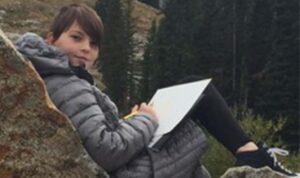
Read all past letters through these links:
#1 #2 #3 #4 #5 #6 #7 #8
Link to landing page here
